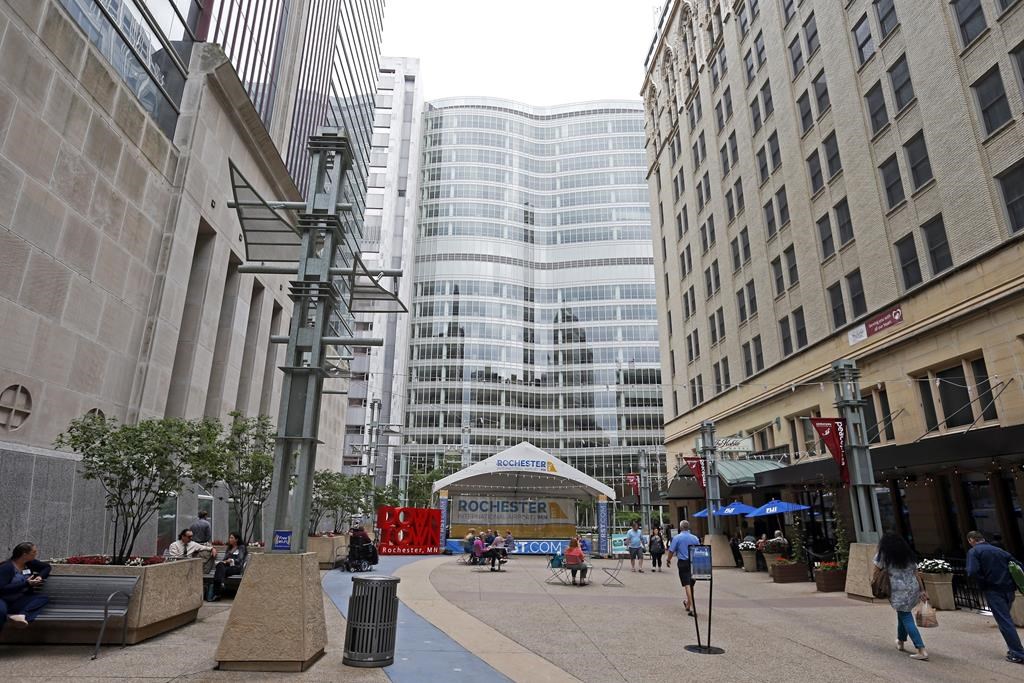Mayo Clinic announces $5 billion expansion of Minnesota campus

MINNEAPOLIS (AP) — The Mayo Clinic announced a $5 billion expansion plan for its flagship campus Tuesday that includes new buildings designed so they can evolve and expand as patient needs change over the coming decades.
The project is part of a Mayo strategy to transform both patient care and its campus in downtown Rochester, about 80 miles (130 kilometers) southeast of Minneapolis. This storied hospital is known for its patient care as well as scientific breakthroughs in cancer and gene therapies. It draws patients from around the world.
A key to it will be the creation of “neighborhoods” within the new facilities, where patients can go for all the services they need for their particular condition, such as cancer, without needing to be shuttled between various departments. Another component of that strategy will be integrating in-person and virtual visits, and taking advantage of artificial intelligence, including to accelerate the development of new cures.
Advertisement
The idea is to blur the traditional lines between inpatient and outpatient care, and between digital and in-person care, Dr. Gianrico Farrugia, Mayo’s CEO, said in an interview. That requires rethinking how the buildings themselves are designed, he said.
“This is not about making a nicer facility,” Farrugia said. “This is making a place that will give a better outcome.”
Mayo will add five new buildings with 2.4 million square feet (223,000 square meters) of space as part of the project. They’ll be designed so their spaces can be easily converted to new uses when needs change, such as from patient rooms to operating rooms.
Much of that space will be in two new clinical buildings at the center of campus. Each will have nine floors but they’ll be as tall as a more conventional 16-story building, and they’ll be designed strong enough so that more floors could be added in the future. Skyways and tunnels will connect the new facilities with existing buildings
Mayo is funding the project with its own money as part of its long-term plans, Farrugia said. Most construction will begin in early 2024. Some facilities are expected to begin operating as early as 2028, with completion projected for 2030.
Advertisement
Farrugia said Mayo hopes the new facilities will “serve as an example for what a global health care facility should look like.”
Steve Karnowski, The Associated Press